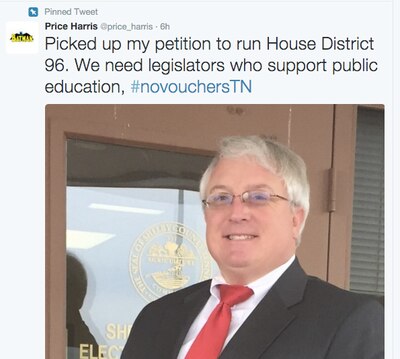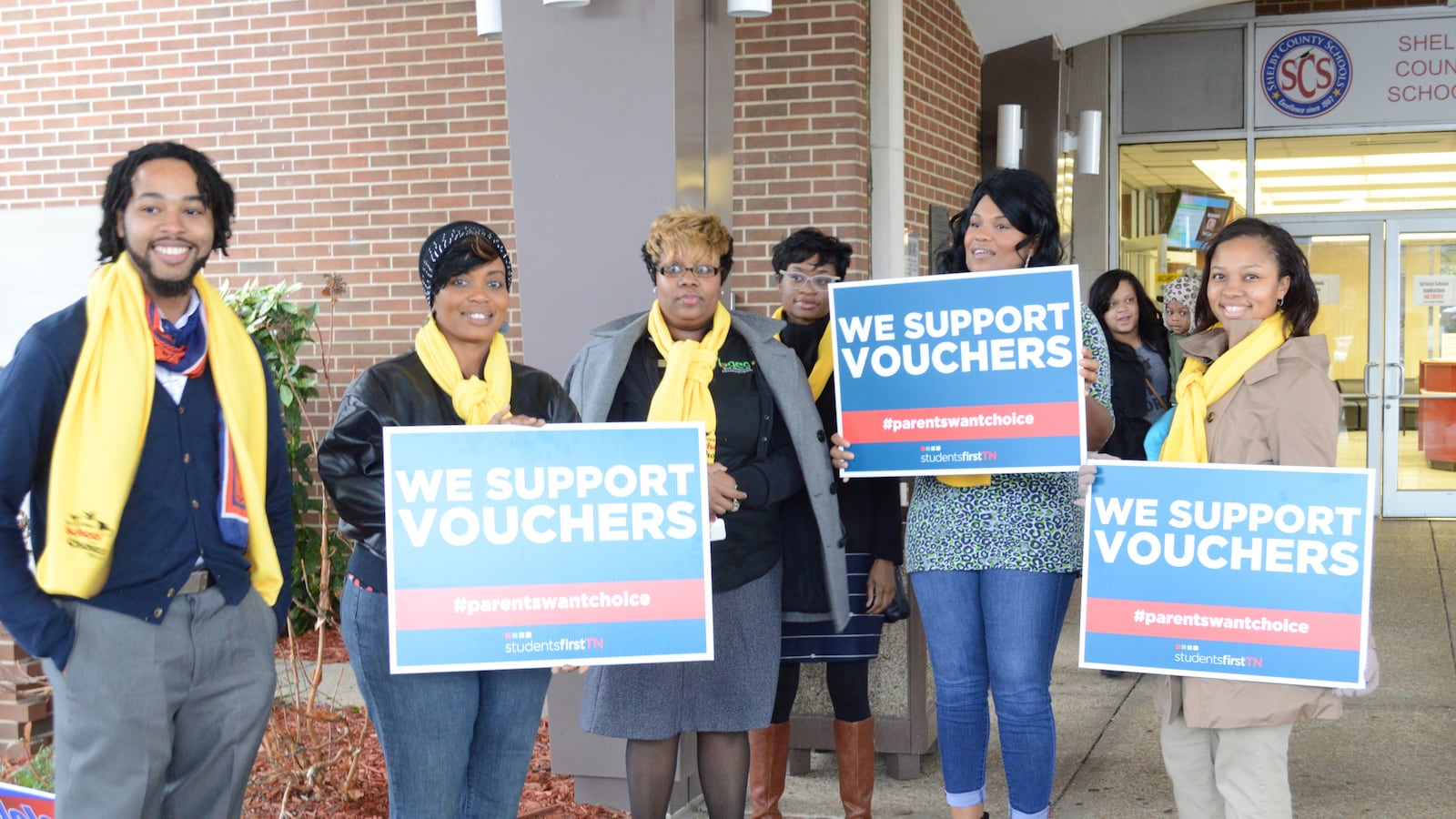When R. Price Harris, a Memphis attorney, headed to a rally against school vouchers Monday that his wife had told him about, all he wanted to do was show his support.
By the end of the day, he had decided to run for office.
In between, Harris heard local parents express deep fears about the effects of allowing families to use public funds to pay for private school tuition, saw paid advocates offer an opposing view, and got what he said was the cold shoulder from a local lawmaker with influence over a bill that would allow vouchers for the first time in Tennessee.
“The voucher bill will take more money out of this school system, and it will make them do more with what little bit that they have, and even less if this bill passes,” Harris said Tuesday after picking up a petition from the Shelby County Board of Elections. A resident of the Memphis area since he was 4, the 49-year-old is the father to a seventh-grader and high school senior who attend Germantown public schools.
His experience suggests that debate over vouchers — the dominant education policy conversation in the legislature this year — is unlikely to abate even if the bill becomes law.
That debate centers on questions about whose interests vouchers serve.

Voucher proponents say giving new options to low-income students zoned to the state’s lowest performing schools — most of which are in Memphis — will help the students achieve more.
Critics charge that vouchers would drain funding from public schools — a crucial issue in Memphis, where local schools face yearly budget and enrollment pressures amid state-led efforts to overhaul low-performing schools. They also note that because private schools would not have to accept vouchers or provide transportation, vouchers would provide false hope for many families.
Harris, who already followed anti-voucher as well as anti-testing advocacy groups like “Momma Bears” on Twitter, said he was moved by parents and public school teachers at the rally who insisted that vouchers would harm their fragile school district — and disturbed by the presence of representatives from Black Alliance for Educational Options, a national nonprofit group that advocates for school choice, including vouchers.
Those representatives — about half a dozen, compared to about 30 anti-voucher activists — wore matching yellow scarves and held signs printed by the California-based advocacy group StudentsFirst.
“I was looking at the slick signs and the matching scarves and I thought, ‘What’s wrong with this picture? How many of those people actually have kids in public school? Do you have children?'” Harris said on Tuesday. “They’re not a parent. They’re not on the ground. If they had kids, they didn’t mention it.”
That’s a common critique, says Tennessee BAEO director Mendell Grinter. But he said his group had brought parents from low-performing schools to the rally — to listen, not debate.
“We try to give parents as much information as possible to help them make a decision (about schooling),” he said. “We never make a decision for them.”
Harris, who is white and has two children in Germantown’s school district, a more affluent district that exited Shelby County Schools in 2014, said he left the rally “feeling empty” after listening to impassioned community members talk about their opposition to vouchers, their fears on the impact of vouchers on public schools — and their fears that no one was listening.
He then tried to call his local representative, Steve McManus of Cordova — who serves on the panel deciding today whether vouchers should advance — and got no response. That’s what inspired him to file papers to run against McManus in the Republican primary this August.
“I can at least call people back,” Harris said.


